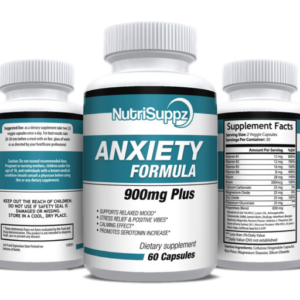25 Apr Anxiety Attacks
Anxiety attacks, also known as panic attacks, are intense episodes of overwhelming fear or distress that can strike suddenly and without warning. These episodes can be terrifying and debilitating, but understanding their symptoms, causes, and effective coping strategies is crucial for managing and mitigating their impact. Here’s a comprehensive guide to help you navigate anxiety attacks and regain control over your mental well-being.
Symptoms of Anxiety Attacks:
Anxiety attacks often manifest with a combination of physical, emotional, and cognitive symptoms. These may include:
- Physical Symptoms:
- Rapid heartbeat or palpitations
- Chest pain or discomfort
- Shortness of breath or hyperventilation
- Sweating or chills
- Trembling or shaking
- Dizziness or lightheadedness
- Nausea or stomach discomfort
- Feeling faint or a sense of impending doom
- Emotional Symptoms:
- Intense fear or panic
- Feeling detached from reality or oneself (depersonalization)
- Fear of losing control or going crazy
- Overwhelming sense of dread or doom
- Irritability or restlessness
- Cognitive Symptoms:
- Racing or intrusive thoughts
- Difficulty concentrating or focusing
- Fear of dying
- Feeling like you’re choking or suffocating
Causes of Anxiety Attacks:
- Anxiety attacks can be triggered by various factors, including:
- Stressful Life Events: Significant life changes such as job loss, relationship issues, or financial problems can contribute to heightened anxiety.
- Genetic Predisposition: Family history of anxiety disorders or mental health conditions can increase the likelihood of experiencing anxiety attacks.
- Underlying Medical Conditions: Certain medical conditions, such as thyroid disorders or heart disease, may increase susceptibility to anxiety attacks.
- Substance Use or Withdrawal: Alcohol, caffeine, nicotine, and certain medications can trigger or exacerbate anxiety symptoms.
- Psychological Factors: Personality traits such as perfectionism or a tendency towards negative thinking patterns can play a role in the onset of anxiety attacks.
- Coping Strategies for Anxiety Attacks:
Managing anxiety attacks involves both immediate strategies to alleviate symptoms during an episode and long-term approaches to reduce their frequency and intensity:
During an Anxiety Attack:
-
- Practice Deep Breathing: Focus on slow, deep breaths to help regulate your breathing and calm your nervous system.
- Use Grounding Techniques: Engage your senses by focusing on objects around you, repeating a calming phrase, or touching a comforting object.
- Progressive Muscle Relaxation: Tense and relax each muscle group in your body to release tension and promote relaxation.
Long-Term Management:
-
- Seek Professional Help: Consult a mental health professional for an accurate diagnosis and personalized treatment plan, which may include therapy (e.g., Cognitive Behavioral Therapy) or medication.
- Practice Stress Management: Adopt stress-reducing techniques such as mindfulness meditation, yoga, or regular exercise to promote overall well-being.
- Maintain a Healthy Lifestyle: Prioritize balanced nutrition, adequate sleep, and regular physical activity to support mental and emotional health.
- Identify Triggers: Keep a journal to track patterns and identify triggers that precede anxiety attacks, allowing you to develop effective coping strategies.
- Limit Stimulants: Reduce or eliminate consumption of substances like caffeine and alcohol, which can exacerbate anxiety symptoms.
Conclusion:
Experiencing anxiety attacks can be distressing, but with understanding and proactive management strategies, it is possible to regain control over your mental health. By recognizing symptoms, understanding potential causes, and implementing effective coping strategies, you can navigate anxiety attacks with resilience and empower yourself towards lasting well-being. Remember, seeking support from healthcare professionals and practicing self-care are essential steps towards managing anxiety effectively.
Read more on anxietymedication.org


No Comments